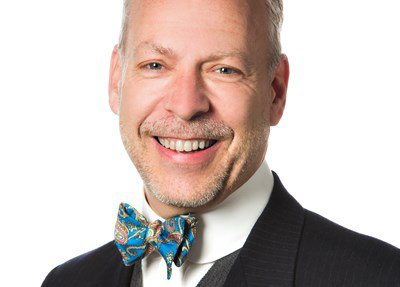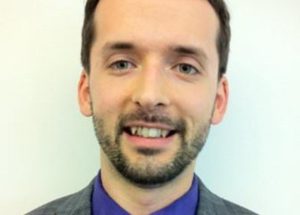Canadians Confused by the Correct Use of the Term “Liberal” – Article by Jeffrey A. Tucker

The Canadian Broadcasting Corporation has been following the political upheavals in the US with some curiosity. In light of this piece, they called me to discuss where the Republican ticket is representing capitalism well. In the course of the interview, I described myself as a fan of commercial society, free enterprise, deregulation, and therefore a classical liberal. I said later that I’m a radical liberal.
Much to the amazement of the producers, it was this section of the interview (which was heard by more than a million people) that caused the biggest response. They were flooded with comments of confusion. Why does this guy call himself a liberal?
The producers were intrigued enough to do an entire segment on the topic, the results of which were interesting and substantial. Of course the topic is complex because the meaning of the word has changed so much in the last 100 years. The corruption of the term became so intense following World War II that the leftover liberals had to change their name to libertarians.
And today matters are in flux. In Eastern Europe and large parts of Latin America, the term is used correctly. In Europe, it is a mix. In the UK, the word liberal is coming back as a description of people who celebrate commercial society, favor peace, support civil liberties, and reject big government. In the US, the term has been left on the table, but is still mostly associated with the opposite of its traditional meaning.
The result of the CBC’s investigative efforts are as follows.
On last week’s episode of The 180, we spoke with Jeffrey Tucker, a self-described ‘classical liberal.’ He argued Donald Trump is giving capitalism a bad name, by presenting himself as a titan of industry, when he’s really more of an entertainer.
After that interview, we received notes from people questioning Tucker’s bona-fides as a ‘liberal,’ since he spoke highly of individual liberties, free markets, and limited government. Some said Tucker was clearly a ‘neo-liberal,’ some said he was a ‘large R conservative,’ presumably meaning Republican, while others thought the term ‘classical liberal’ had plenty of negative connotations all on its own.
So what is a classical liberal?
First off, you should totally click the play button on this page to hear the audio explainer. It’s got all kinds of fun music and clips of people using the word ‘liberal’ in weird and hilarious ways. Like when Rush Limbaugh said the Soviet Union and Cuba and China were run by ‘liberals.’ Weird.
Part of the problem with the word ‘liberal’ is it’s used differently across time, and across countries. In Canada, the word mostly means a supporter of the Liberal Party, or someone in the political middle. In the United States, it means a strong social progressive, and in some circles can mean a socialist or a communist. In Europe it’s associated with internationalism and free migration. In Australia, in the words of Australian Liberal Party leader Malcolm Turnbull, it means the primacy of “freedom, the individual, and the market.”
That last one, the Australian definition, is probably closest to what political scientists consider a classical liberal view.
John Locke
If you want to get what classical liberalism is, and where liberalism as an ideology comes from, you gotta know about this guy, John Locke.
Locke was an English philosopher who lived in the 17th century, and one of the most important people in the development of liberalism, both classical and modern, according to Barbara Arneil, Professor of Political Science at the University of British Columbia.
“In essence what he introduced to the political lexicon was the idea of individual rights. He said individuals have rights by nature, and if the government does not serve those rights, then the people could get together and reject the government. So in essence, this idea of individuals and their rights begins the notion that the government is answerable to individual people.”
This was still a time of kings and emperors and lords and barons, so Locke’s ideas were rather significant. And these liberal ideas influenced a good deal of western society, including the founding documents of the United States of America.
“Thomas Jefferson drew a lot of his philosophy from John Locke. He saw him as the greatest political thinker. So there’s a lot of Locke in the American Declaration of Independence. On the economic side, Locke was also somebody who developed the idea of the right to private property. So we have both the political and economic repercussions and we see them right around the world. All the bills of rights, really originate with Locke’s original idea.”
So if someone says they’re a classical liberal as opposed to modern liberal, they’re probably more in line with Locke’s original sentiments.
Times change, so do words, and so do ideas
At some point, liberalism shifted from its emphasis on individual liberties, to include regulating business, and using the government to support individuals, rather than simply leaving them alone. According to Lee Ward, Associate Professor of Politics and International Studies at the University of Regina, the shift is part of the industrial revolution throughout the 18th and 19th centuries.
“The term liberalism takes on a new kind of meaning, politically. Sometimes called ‘welfare liberalism. At that point, liberalism is accommodating the new demands produced by industrialization. So classical liberals in the 17th century were talking about an economy that was very rudimentary compared to what we have today. A bank in the 17th century doesn’t mean the same thing as a bank in the 20th century. So by the time you get to the 20th century, liberalism has changed.”
To Barbara Arneil at UBC, it’s not simply that the definition of liberalism changed, it’s that over time, some people changed their conception of ‘freedom’. Whereas classical liberals think of liberty as being free from interference, modern liberalism considers whether the government can support people in society to freely pursue their goals.
“I think the thread that remains throughout all liberal thought is the idea of the individual and their freedom. So initially, freedom is understood as being free of restraints. But now we have a different definition of freedom, and it’s about having the necessary supports to have freedom that has any meaning.”
The concepts of liberalism, both classical and modern, are political philosophies and ideologies not specific political affiliations, and these concepts, among others, influence parties across the Canadian spectrum.
Labels and insults
In the United States, ‘liberal’ is often used as an epithet. To some degree, the terms ‘neo-liberal’ or ‘social conservative’ or ‘socialist’ are also used as negative descriptors in Canada.
To Ward, it’s not particularly helpful to use philosophical terminology as a pejorative, or to try and sum up a person’s character or values with a snippy line about liberals, conservatives, socialists, or anarchists.
“I worry that sometimes we throw out terminology as weapons, as rhetorical jabs. Understand that behind all of the different perspectives and ideologies, there’s some claim to justice there. And even if I disagree in large measure with much of what’s being said, there’s is some truth that is being expressed. There’s something good in it. As good as it is to be engaged in politics and to really care about what’s happening, it’s also good to step back sometimes and to understand that when we use terms like conservative, liberal, progressive, socialist, they’re all reflecting a certain claim to justice, and there’s probably something in each of those that we can agree with.”
According to Ward, if we could understand that behind all the terms we throw around to describe people, there is a rich intellectual history, we could have more respectful and constructive political debate.
Jeffrey Tucker
Jeffrey Tucker is Director of Content for the Foundation for Economic Education and CLO of the startup Liberty.me. Author of five books, and many thousands of articles, he speaks at FEE summer seminars and other events. His latest book is Bit by Bit: How P2P Is Freeing the World. Follow on Twitter and Like on Facebook. Email. Tweets by @jeffreyatucker
This article was originally published on FEE.org. Read the original article.


